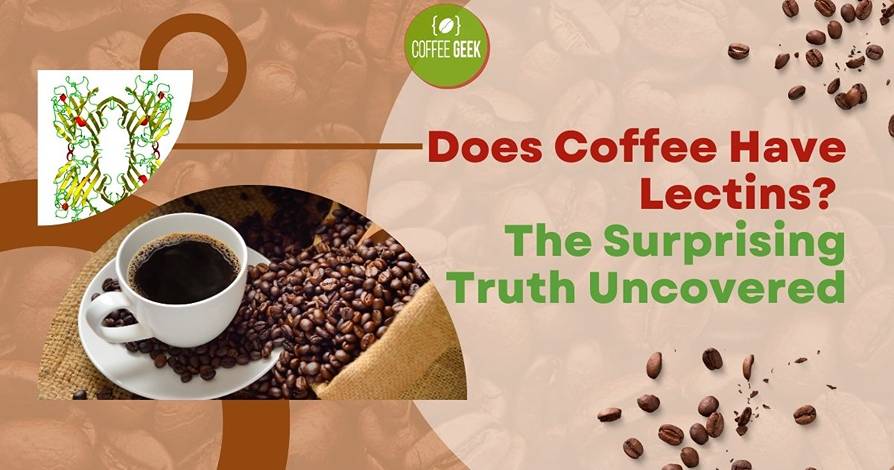Lately, I’ve been hearing a lot about lectins and their potential impact on our health. So, it got me thinking: does coffee have lectins?
After doing some research, I discovered that coffee beans do contain lectins, but in varying concentrations. It turns out that lectins are found in many foods as well, including grains, beans, and nuts.
Lectins are proteins that bind to carbohydrates and can act as a natural insecticide for plants, protecting them from predators.
However, when consumed in large quantities by humans, they may cause issues in intestinal lining of the small intestine.
Despite their potentially negative effects, it’s important to remember that lectins are just one piece of the nutrition puzzle and shouldn’t be the sole reason to avoid any specific food or beverage.
Key Takeaways
- Coffee contains lectins which can have varying effects on our health.
- Lectins play a protective role in plants and are also found in a lot of foods.
- Consuming large quantities of lectins may lead to issues in the human small intestine.
- Does Coffee Have Lectins?
- What Are Lectins and Their Functions
- Negative Effects of Lectins in the Human Body
- Lectins in Coffee and Other Beverages
- Methods to Reduce Lectin Content in Food
- The Lectin-Free Diet and Its Impact on Health
- Common Misconceptions About Lectins
- Identifying High-Lectin Foods and Alternatives
- Frequently Asked Questions
Does Coffee Have Lectins?
Let me tell you, as a coffee lover and regular coffee consumption person, I was a little taken aback by the idea that drinking coffee might actually have lectins. Does coffee have lectins? So, I did some research to find out if it’s true.
Well, it turns out that coffee beans do contain lectins, but don’t panic! They’re not in harmful amounts. In fact, lectins are found in many foods, and they’re a natural part of both plants and animals.
These proteins bind to certain carbohydrates and play a role in various biological processes.
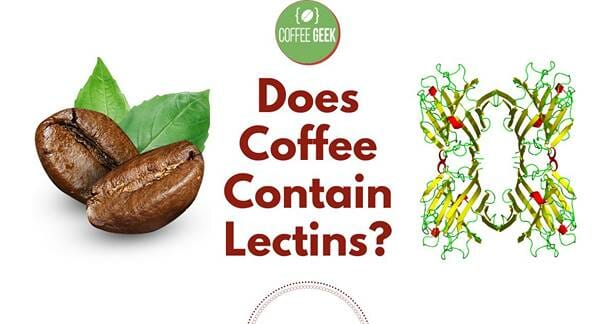
Now that I knew coffee beans have lectins, I wanted to understand more about their potential health benefits, or effects. When consumed in large quantities, lectins can apparently cause some trouble in the small intestine,
as mentioned by Dr. Keesha.
However, the quantity of lectins in coffee beans is relatively small, so it’s not something we should be too worried about—unless you have a specific sensitivity to them.
Interestingly, there’s also no scientific evidence to suggest that eliminating dietary lectins will cure any medical disorders or conditions, like diseases autoimmune. So, if you’ve heard about the “dangers” of lectins, don’t get too caught up in the hype.
In conclusion, do not avoid coffee just because of the lectins. The amount in coffee is not harmful, and there’s no substantial proof that eliminating them from your diet would have any significant human health benefits.
Enjoy your coffee without worrying too much about it! Just remember to always consume it in moderation.
What Are Lectins and Their Functions
So, let me tell you about lectins and their functions. Lectins are a type of protein that binds to certain carbohydrates and are present in many beans, grains, nuts, and many plant-based foods.
Interestingly, some lectins also occur in animals, such as those found in peanuts. These proteins can have different effects on humans, from being harmful and toxic in some cases to having health benefits in others.
As I consume various foods, like legumes and grains, I ingest small amounts of lectins. These lectins can sometimes cause mild inflammation in my body, but cooking the food can significantly reduce lectin content, making it safe to eat.
In fact, the majority of plant-based foods, including some fruits, contain lectins, and we consume them daily without any issues.
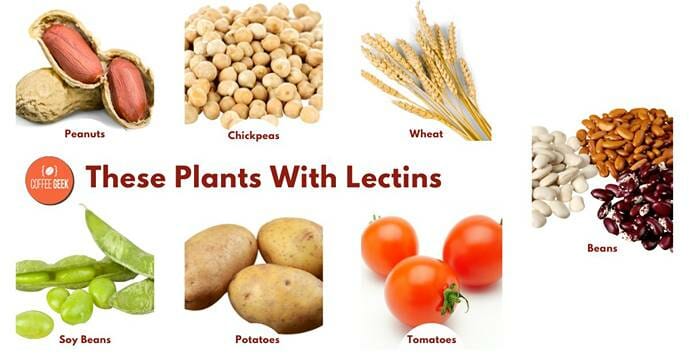
Now, when it comes to consume coffee, the presence of lectins in coffee beans may be a concern for some. While I enjoy my daily cup of caffeine, I am aware that lectins are found in small amounts in tea and coffee beans.
But don’t worry, these levels are usually too low to cause any harm, especially if consumed in moderation.
In summary, lectins are naturally occurring proteins found in various plants and animals.
They can have both positive and negative effects on our bodies, but typically, the benefits of consuming nutritious food sources outweigh the potential side effects of lectin consumption.
So, in my opinion, there is no need to be overly concerned about lectins in coffee beans or other food sources.
Negative Effects of Lectins in the Human Body
I recently learned about lectins and their potential impact on our health, especially if consumed in large amounts. Let me tell you about some of the negative effects that lectins can have on the human body.
First, let me explain that lectins are proteins found in many plant foods, including soybeans and other beans, grains, and some vegetables. Now, when consumed in their active state,
lectins can cause problems such as syndrome leaky gut, irritable bowel syndrome (IBS), colitis, and other digestive issues.
Leaky gut syndrome, for example, occurs when the lining of the gut is damaged, allowing toxins and bacteria to ‘leak’ into the bloodstream.
This can lead to inflammation and a variety of health issues, including autoimmune diseases like rheumatoid arthritis, fibromyalgia, and multiple sclerosis.
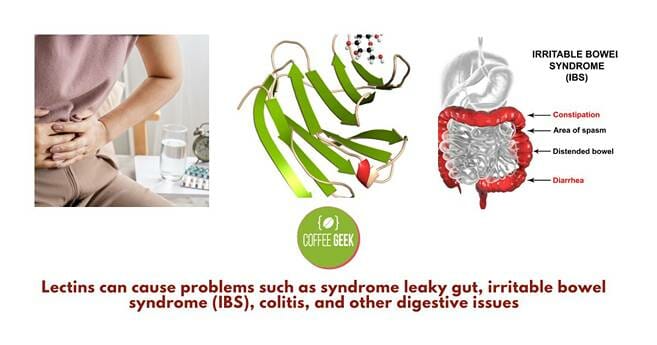
In addition to digestive issues, consuming high amounts of lectins has been linked to an increase in inflammation throughout the body. This is a concern because chronic inflammation can contribute to the development of autoimmune diseases and even cancer.
It is unlikely that moderate consumption of lectin-containing foods would cause severe health problems for most people.
Those who are already dealing with diseases autoimmune or gut-related issues might want to consider reducing their intake of lectin-rich foods like soybeans, beans, and certain vegetables.
In conclusion, while lectins are not inherently bad for you, it’s essential to be aware of their potential negative effects on the human body.
If you’re dealing with an autoimmune disease or gut issues, it might be worth considering whether consuming lectin-rich foods is contributing to your symptoms.
Lectins in Coffee and Other Beverages
So, I found out that many of us consuming coffee lovers have been curious about whether coffee beans contain lectins. Does coffee have lectins?
I can understand why; these little protein molecules have generated quite a buzz for being potentially harmful to our health, especially when consumed in large quantities.
And yes, it turns out that coffee beans do contain lectins, but don’t worry, the amount is not as alarming as it sounds.
You see, most of the lectins get destroyed in the brewing process, so your morning cup of joe shouldn’t be a major concern when it comes to lectin intake.

On the other hand, if you compare coffee to other beverages like tea, milk, and water, you’ll notice a clear difference in lectin levels.
Tea, especially green and black varieties, also contains lectins, but again, the preparation process lessens their presence, making them not much of a concern for your health.
Now, when it comes to milk, it’s a whole different story. Milk is virtually free of lectins, making it an ideal choice for those who are looking to minimize their lectin consumption.
And as for water, well, it’s just water. No sneaky lectins hiding in there!
Let’s not forget about caffeine, which is present in both coffee and tea. While caffeine itself doesn’t have any lectins, its consumption may affect how our bodies react to lectins from other sources.
So, in a way, you could say that your caffeine intake can indirectly influence your lectin levels.
In conclusion, while coffee beans and tea do contain some lectins, the brewing process reduces their levels, making these popular drinks less of a threat to your health.
Just remember to enjoy your beverages in moderation, and you should be good to go!
Methods to Reduce Lectin Content in Food
When I prepare my meals, I make sure to take measures to reduce the lectin content in the food I consume. Here are a few methods I have found highly effective in doing so:
Firstly, cooking is essential for reducing lectins in food. In particular, wet high-heat cooking methods, such as boiling or stewing, can inactivate most lectins. I found that boiling most foods high in lectins for around 10 minutes tend to reduce their lectin content quite effectively.
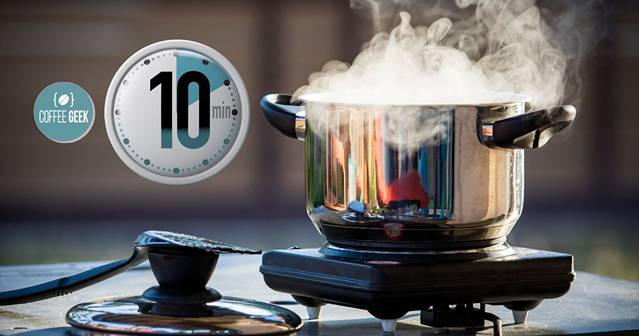
Another technique I use is soaking legumes and grains before cooking. This not only helps to reduce the lectins but also makes them more digestible. I usually soak them in water for a few hours or overnight – the longer, the better.
Pressure cooking is also a great way to destroy lectins, especially in foods like beans, tomatoes, and potatoes. I’ve noticed that it might not eliminate all lectins, but it does a pretty good job at reducing a significant amount of them.
For other foods, like nuts and seeds, roasting can be used as an alternative method to reduce lectin content. In some cases, I prefer roasting for added flavor and crispiness. However, in general, wet cooking methods are more effective against lectins.
Besides these methods, implementing peeling and deseeding can also help lower lectin levels, particularly in fruits and vegetables. Finally, fermentation is another useful method to naturally break down and neutralize lectins.
Remember, I apply these methods in moderation, as lectins are not inherently bad, and some foods high in lectins can be part of a healthy diet. Just don’t overdo it, and always be mindful of the ingredients you’re using!
The Lectin-Free Diet and Its Impact on Health
So, I’ve been researching the lectin-free diet, and I thought I should share some interesting findings on how it could impact our health.
For those who aren’t familiar with it, the lectin-free diet eliminates foods containing lectins, which are a type of carbohydrate-binding protein present in many plant foods, such as legumes, whole grains, and some vegetables.
Now, you might be wondering what the benefits of a lectin-free diet are. According to some, this dietary choice could potentially help with a range of health concerns like restless leg syndrome, eczema, brain fog, insulin resistance, and thyroid dysfunction.
By avoiding lectin-heavy foods, we may be able to regulate our blood pressure, calcium levels, and diabetes management. Pretty cool, right?
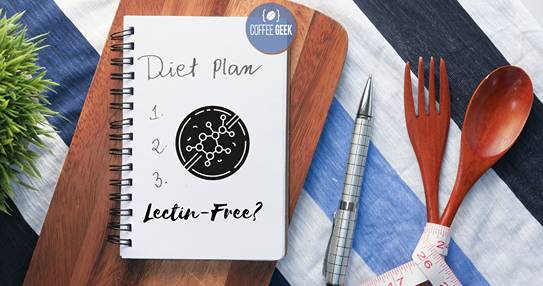
However, I think it’s important to remember that there are also some good sides to lectins. For instance, vegetables and other plant-based foods are packed with fiber and essential micronutrients that are great for our health.
Plus, not every scientist is on board with the lectin-free diet concept. In fact, Mayo Clinic states that no scientific evidence proves eliminating lectins completely will cure any medical disorders or conditions.
That being said, there’s still a lot we don’t know about lectins and their relation to certain health conditions.
For example, the controversial book “The Plant Paradox” claims that lectins could be the root cause of many allergies, autoimmune disorders, and inflammation. But again, this theory is not widely accepted among the scientific community.
As for me, I’m still keeping an open mind about the whole lectin-free diet situation. If you decide to try it out, keep in mind that you’ll have to be conscious of the foods you consume, since lectins are found in not only plant foods but also meat and dairy products.
And who knows, maybe cutting down on lectins will work wonders for your body; just remember to treat the information with a grain of salt and consult a healthcare professional before making any drastic changes to your diet!
Common Misconceptions About Lectins
I’ve stumbled upon quite a few misconceptions when it comes to lectins. Many people seem to think of lectins as some kind of poison found in large quantities in their food.
As a coffee addict myself, I even wondered about the presence of lectins in my daily cup of java. However, understanding more about lectins helped me realize that not all lectins are equal and harmful.
One common misconception is that lectins can cause severe poisoning, like ricin, which is a highly toxic lectin.
While some lectins, such as phytohemagglutinin (found in undercooked kidney beans), can indeed cause issues like abdominal pain or diarrhea, most dietary lectins break down when processed or cooked.
This means that the risk of adverse health effects from lectin-rich foods that are consumed cooked is not a cause for concern, especially in coffee beans.
Another misunderstanding is that lectins are found in all food items in high concentrations. In reality, lectins are most commonly found in legumes, grains, and some vegetables.
They serve a protective function for plants and don’t have any nutritional value when consumed, so it’s not like we’re loading up on these substances when we eat a balanced diet.
When it comes to fiber, people often lump it together with lectins, especially in the case of wheat germ. This can lead to some confusion about the potential health risks of consuming foods with lectins.
However, fiber is a completely different component and has numerous health benefits, like aiding in digestion and promoting weight loss.
Lectins and malnutrition are another misconception. Although excessive consumption of lectins might reduce nutrient absorption, a well-balanced diet that includes various food sources ensures that the body receives all necessary nutrients.
In short, while certain lectins can cause issues when consumed in large quantities, a regular balanced diet and consuming cooked foods should not pose health risks to most individuals.
As a coffee enthusiast, knowing that coffee beans contain lectins but aren’t harmful to our health is quite a relief! So, let’s not let these misconceptions about lectins get in the way of enjoying our daily caffeine fix.
Identifying High-Lectin Foods and Alternatives
So, I’ve been looking into this whole lectin thing, and I’ve found that there are quite a few foods with high amounts of lectins, causing potential health risks for some people. Let me share what I’ve discovered about which ones you should keep an eye on and some alternatives.
First off, it’s good to know that there are different types of lectins found in various organisms – which means they can pop up in a lot of different foods.
What are they, you ask? Well, lectins are considered antinutrients, meaning they might interfere with the absorption of other nutrients in our digestive system and even mess up our enzymes.
Now, some foods are notorious for being high in lectins, like potatoes, tomatoes, peppers, and peas. These foods are all part of the nightshade family.
It’s interesting to note that coffee also contains lectins, which might contribute to various autoimmune disorders like Hashimoto’s thyroiditis, rosacea, Raynaud’s, and psoriasis.
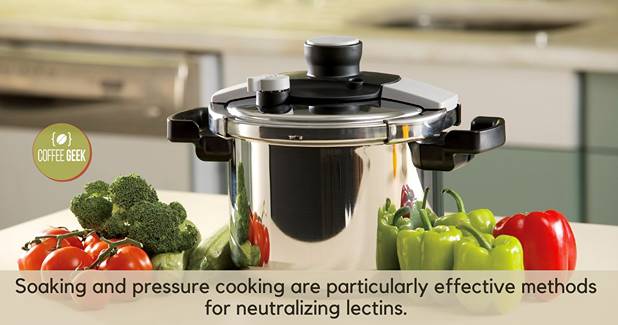
Anyway, back to high-lectin foods. Lentils, along with other legumes like beans, also pack a hefty lectin-punch. But don’t worry – there’s hope!
Cooking these foods can help reduce lectin levels, making them safer to eat. Soaking and pressure cooking are particularly effective methods for neutralizing lectins.
Alright, so where does that leave us in terms of alternatives?
If you’re keen on swapping out some high-lectin foods (like I am), here are a few suggestions I found:
- Instead of potatoes, try sweet potatoes or yams
- Swap tomatoes and peppers for veggies like zucchini and cucumbers
- Opt for quinoa over lentils and beans
One last thought: When it comes to food sensitivities and potential health risks, it’s crucial to listen to your body and consider consulting a professional.
Remember, everyone’s different, and what might work for me might not work for you. So, explore your options and find what suits you best!
Frequently Asked Questions
Are there lectins in decaf coffee?
Yes, there are lectins in decaf coffee. Both caffeinated and decaffeinated coffee beans contain lectins, although the quantity is relatively low when compared to other foods like legumes and grains.
So, enjoying a cup of decaf coffee shouldn’t be a significant source of concern for people watching their lectin intake.
How can lectins be removed from coffee beans?
There’s no specific method to completely remove lectins from coffee beans, but some techniques can help reduce their content. For instance, the brewing process itself seems to eliminate a fair amount of lectins.
Moreover, opting for lighter roasts and blends containing fewer beans with a higher lectin content, like Arabica over Robusta, can help minimize lectins in your cup of coffee.
Is tea a lectin-free alternative to coffee?
Tea is generally considered a lower-lectin alternative to coffee. While tea leaves do contain lectins, they are present in significantly lesser amounts.
Therefore, if I’m looking for a hot beverage with lower lectin content, tea can be a viable option.
Do eggs contain a high amount of lectins?
Eggs do contain some lectins; however, they’re generally not considered a high-lectin food.
The lectins in eggs are mainly found in the egg white, so people who are really concerned about their lectin intake could choose to consume just the egg yolk instead.
What foods can help neutralize lectins?
Adding certain foods to my diet can help minimize the negative effects of lectins.
For instance, consuming fermented and cultured foods like yogurt, kefir, and sauerkraut can help promote good gut health, which in turn may help reduce the impact of lectins.
Additionally, some research suggests that certain polyphenols, like those found in blueberries, raspberries, and dark chocolate, can help neutralize lectins.
What advice does Dr. Gundry have for coffee consumption?
Dr. Gundry, an advocate of the lectin-free diet, suggests enjoying coffee in moderation.
He believes that limiting my coffee consumption to one or two cups a day, preferably earlier in the day, and sticking to light roasts can help reduce the potential negative effects of lectins in my diet.
Ultimately, it’s essential to listen to my body and how it reacts to the coffee I consume so I can make the best decision for my health.

